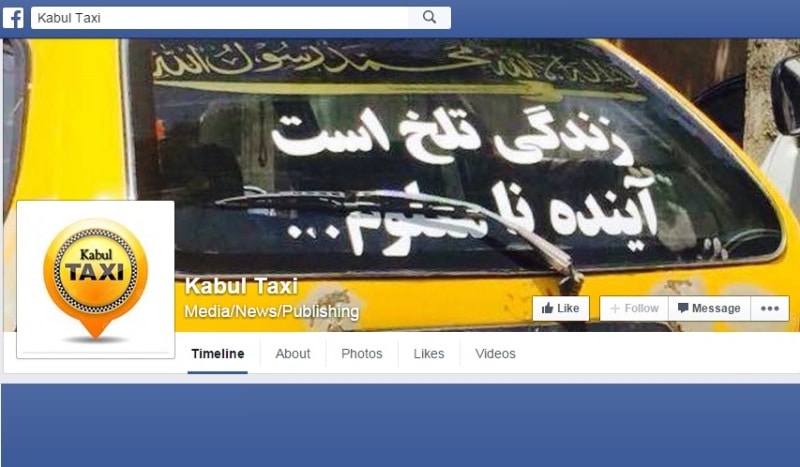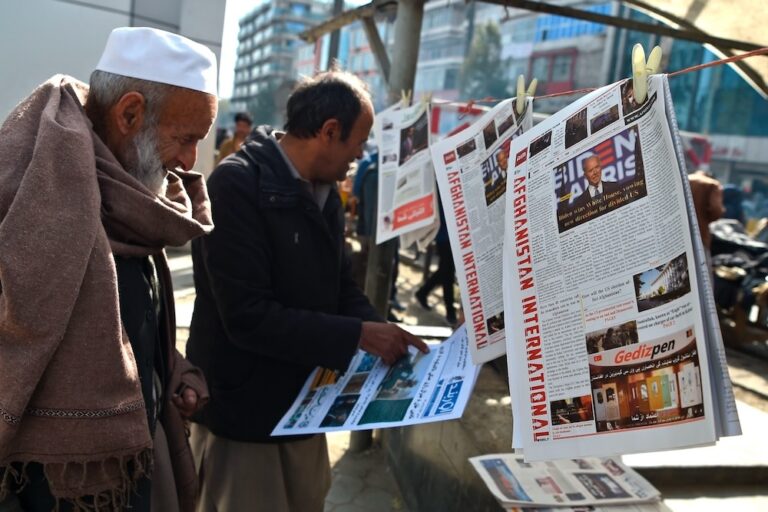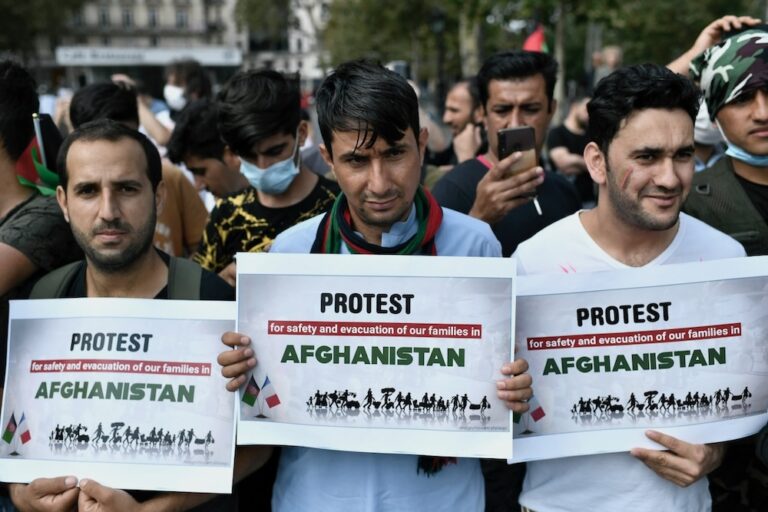A new study shows more than 100 cases of violence against female journalists have been registered since the beginning of the year in Kabul and Balkh provinces, Afghanistan.
This statement was originally published on afjc.af on 20 August 2015.
A new study shows more than 100 cases of violence against female journalists have been registered since the beginning of the year and that this has an impact on the media.
The contents of the study were discussed at a gathering entitled “Women journalists as preservers of justice and equality” in Kabul.
The study, which focused on 150 journalists and 15 officials of media outlets in Kabul and Balkh provinces, found that underrepresentation of women journalists had a negative impact on the contents, quality and effectiveness of media coverage.
Social and Cultural Organization (SCO) head Masouma Mohammadi said advocating improved lives for journalists had been one of their main activities.
The study, she added, was aimed at evaluating the situation of female journalists and addressing their issues. She said one of the major problems female journalists faced was the high level of violence against them.
The level of violence against female journalists was higher in Kabul than Balkh province and common people and security officials were to blame for this, she added.
After common people in Mazar-i-Sharif, family members were found to be responsible for inflicting violence on women journalists, she said.
Based on the SCO’s figures, since the beginning of the year, more than 105 cases of violence against female journalists have been registered in Kabul and Balkh provinces.
The cases include verbal abuse, threats, physical violence, sexual harassment and beatings.
Of the incidents, 41 cases occurred outside the field, as many in the field and 17 incidents took place at the journalists’ workplaces.
The study found that gender discrimination still exists against female journalists and 19.5 percent of them work without salaries or for only 3,000 Afghanis per month.
Afghan satire ‘Kabul Taxi’ angers spies, journalists summoned for questioning
In an unrelated development, the biting political satire of a Facebook page called Kabul Taxi got under the skin of Afghanistan’s security agency – enough so that it summoned the two journalists it suspects of being behind it for a two-hour grilling.
According to Reuters, Kabul Taxi’s acerbic take on the foibles of the Afghan government, corrupt officials and bureaucrats has made it the talk of the capital in the three months since it was launched and a leader in a burgeoning scene of online satire sites.
The latest target was Haneef Atmar, the powerful National Security Council adviser to President Ashraf Ghani, whom Kabul Taxi mocked over the number of his advisers and their activities.
Atmar, however, did not find this funny.
The National Directorate of Security, the intelligence agency that effectively reports to Atmar, hauled in two reporters it suspected to be behind Kabul Taxi.
The National Security Council (NSC) issued a statement on Monday 24 August, saying Kabul Taxi had leaked government secrets by naming some NSC staff, presenting what it deemed a “serious security risk” to their lives.
“The NSC office with respect to freedom of expression and people’s access to information, has asked concerned authorities to act against the offenders of this case to prevent further leaks of secrets in the security sector,” the statement added.
The Afghanistan Journalists Center (AFJC) defended Kabul Taxi, saying the staff names were already published on the NSC’s own Facebook page along with their photos.
One Kabul Taxi follower responded with a dark joke about the worsening security situation in Kabul, where a recent truck bomb and other attacks have caused public outrage.
“The National Security Council and intelligence agency … should not be chasing the Kabul Taxi driver, they should be chasing the truck bombers who massacre people.”
Joking apart, the pressure put on the satirists has raised concerns among activists about press freedom. AFJC condemned the interrogations and urged the government to respect freedom of expression.
AFJC believes that the national security advisor Hanif Atmar is making clear excuses regarding the Security Council’s intervention by summoning the journalists, and that satirical reports can never create problems for the government.
This comes as the NSC issued a statement criticizing the social media page for disclosing information regarding the council, insisting that disclosing such information could pose serious threats to the personnel of the council.



